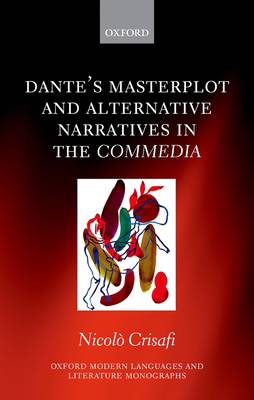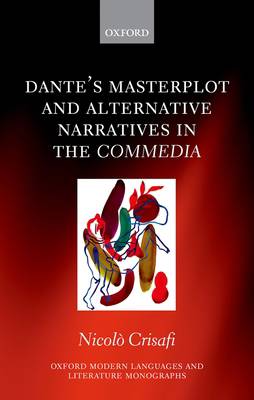
Bedankt voor het vertrouwen het afgelopen jaar! Om jou te bedanken bieden we GRATIS verzending (in België) aan op alles gedurende de hele maand januari.
- Afhalen na 1 uur in een winkel met voorraad
- In januari gratis thuislevering in België
- Ruim aanbod met 7 miljoen producten
Bedankt voor het vertrouwen het afgelopen jaar! Om jou te bedanken bieden we GRATIS verzending (in België) aan op alles gedurende de hele maand januari.
- Afhalen na 1 uur in een winkel met voorraad
- In januari gratis thuislevering in België
- Ruim aanbod met 7 miljoen producten
Zoeken
Omschrijving
Dante's Masterplot and Alternative Narratives in the 'Commedia' questions the familiar narrative arc at play in the writings of Dante Alighieri and opens his masterpiece to three alternative models that resist it. Dante's masterplot is the teleological trajectory by which the poet subordinates the past to the authority of a new experience. The book analyses the masterplot's workings in Dante's text and its role in the interpretation of the poem, and it documents its overwhelming success in influencing readings of the Commedia over the centuries. The volume then explores three competing narrative models that resist and counter its monopoly which are enacted by paradoxes, alternative endings and parallel lives, and the future. By focusing on these non-linear modes of storytelling and testing the limits of linear narration, the book questions critical paradigms in the scholarship of the Commedia that favour a single normative master truth, exposes their problematic authoritarian implications, and highlights the manifold poetic, theological, and ethical tensions that are often neglected due to the masterplot's influence. The new picture of a vulnerable author and open-ended text that emerges from this study thus doubles as a metacritical reflection on the state of the field. The book's impassioned argument is that, alongside established notions of his trademark plurality of linguistic registers and styles, Dante's narrative pluralism can, and should, come to play a key role in contemporary and future readings of the Commedia.
Specificaties
Betrokkenen
- Auteur(s):
- Uitgeverij:
Inhoud
- Aantal bladzijden:
- 210
- Taal:
- Engels
- Reeks:
Eigenschappen
- Productcode (EAN):
- 9780192857675
- Verschijningsdatum:
- 24/05/2022
- Uitvoering:
- Hardcover
- Formaat:
- Genaaid
- Afmetingen:
- 144 mm x 217 mm
- Gewicht:
- 371 g

Alleen bij Standaard Boekhandel
+ 338 punten op je klantenkaart van Standaard Boekhandel
Beoordelingen
We publiceren alleen reviews die voldoen aan de voorwaarden voor reviews. Bekijk onze voorwaarden voor reviews.









